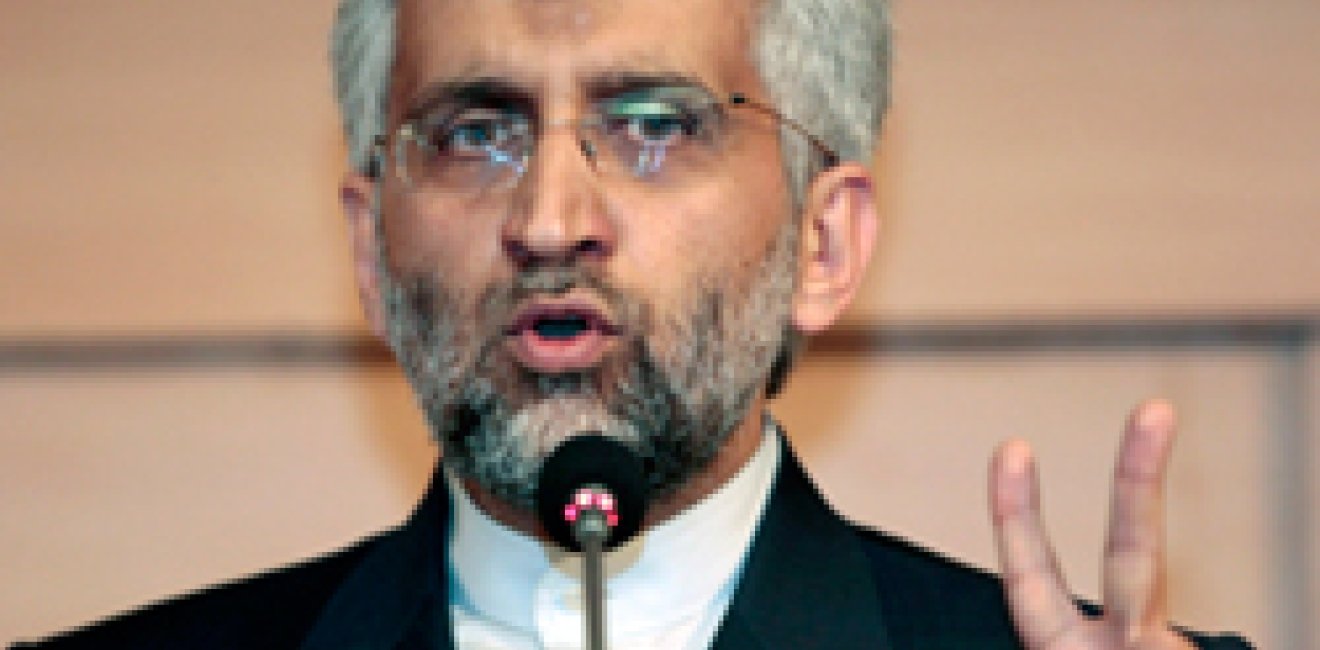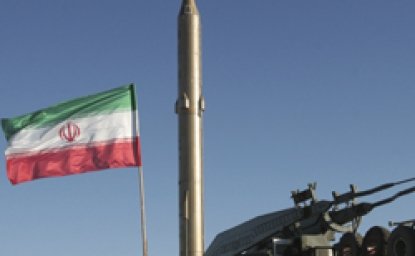A day after the head of the United Nations nuclear agency said he expects an imminent agreement to investigate Iran’s nuclear program, officials from the Islamic Republic, the U.S., and five other major powers are set to meet in Baghdad. Talks over Iran’s alleged pursuit of nuclear weapons have been marked by mistrust and have ended in failure over the past decade. This time around, even with Washington threatening to implement further sanctions this summer, and with Israel still talking of a possible war, a diplomatic breakthrough seems possible. But it won’t happen overnight.
The latest negotiations come after a successful meeting last month in Istanbul. Today’s talks, which will be held at a guest house inside Baghdad’s Green Zone, will see each side present its proposals. The U.S. and its five partners—Russia, China, Britain, Germany, and France—want to stop Iran from enriching uranium up to 20 percent, which is closer to weapons-grade levels than needed for normal energy use. Any uranium enriched to 20 percent that Iran has already stockpiled would have to be shipped out of the country. Iran denies charges that it seeks the bomb. It says its nuclear work is for peaceful purposes, such as generating electricity.
In return, the United States and its partners are ready to stop imposing new sanctions on the Islamic Republic, and offer Tehran such incentives as spare airplane parts, which the country desperately needs, and such assistance as technical help for the country’s deteriorating energy industry. Halting the costly sanctions against Iran’s central bank and its ability to sell oil—set to take place in July—will not be on the table.
Iran wants all sanctions lifted, but that won’t happen unless the country fulfills the U.N.’s demand for a complete suspension of nuclear enrichment, U.S. officials say. According to Western diplomats, today’s meeting, and another that could follow in roughly two weeks, will likely serve as the opening bids in what is expected to be a longer negotiating process. If Iran outright rejects this opening bid from Washington, and makes ending all sanctions a precondition, the talks will undoubtedly fail.
Last week, foreign ministry spokesman Ramin Mehmanparast said that the lifting of sanctions would give “the first signs” that the West would be changing its “wrong” approach towards Iran and its nuclear work. Officials from Iran’s Supreme Leader Ayatollah Ali Khameini on down have welcomed the talks and what Khameini has called the U.S’s “exit from delusion” in backing away from threats of war. They claim the United States now honors Khameini’s fatwa, or religious edict, that Iran opposes nuclear weapons. U.S. Secretary of State Hillary Clinton has said the United States does indeed appreciate the fatwa, and that the time has come to “operationalize” it.
Iranian officials deny that sanctions will make Iran yield on its nuclear program, but American and other Western officials see the current round of talks—along with Iran’s apparent willingness to cooperate with U.N. nuclear inspectors—as proof the punitive measures are working.
The United States and other nations have imposed a variety of sanctions on the Islamic Republic. But the most recent round is the most powerful. Once sanctions against Iran’s oil industry and central bank take effect in July, Iranian oil exports could fall by a third. Iran is reportedly storing unsold oil on tankers, and may even have to turn off some of its wells. Meanwhile, the country has been forced to receive payment for its oil in gold, local currencies, or barter due to the banking sanctions already in place.
Israel, which is insisting on tough sanctions, is watching intently how things shake out in Baghdad. Ehud Barak, the country’s defense minister, has warned that Iran may be trying to “create the impression of progress,” as a way to avoid new sanctions. For months, Barak and Israeli Prime Minister Benjamin Netanyahu have been raising the possibility of a military strike, saying that Tehran represents an existential threat to the Jewish state.
Because it’s an election year, President Barack Obama has limited room to make concessions to the Iranians; his Republican opponents will be quick to condemn his foreign policy, especially as it pertains to the Jewish state. The key for Obama will be to proceed cautiously, but still manage to convince the Israelis that Iran is not being allowed to stall. That’s why the talks in Baghdad will not likely be followed by expert meetings to further hone specific positions. One diplomat told me the process is still too politically unstable for this to occur. There first must be an agreement, with real concessions and real deadlines, agreed to by both sides. Only then can Washington and Tehran iron out the details.
As a senior diplomat put it: “We’re going into the meeting with a clear idea of what we need, and a clear idea of what we could do in return; time will tell whether the other side is ready to play.”
There is still time for this process to work. If both sides focus on the issues and don’t veer off into lecturing and haranguing, each could return home to prepare for a round of more substantial talks. Once the positions are set, real negotiations would begin, with give-and-take on both sides. Even if the banking and oil sanctions go into effect in July, bits of those could be adjusted if Iran cooperates, said one diplomat.
So it all comes down to making a deal. As a senior diplomat put it: “We’re going into the meeting with a clear idea of what we need, and a clear idea of what we could do in return; time will tell whether the other side is ready to play.”
This article originally appeared on The Daily Beast.





